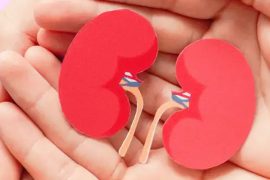Metabolism is a critical factor in nutrient absorption and weight management. An efficient metabolism ensures that the body effectively converts food into energy for various bodily functions. However, metabolism can slow down with age and can be influenced by genetic factors. A sluggish metabolism may lead to weight gain, as the body struggles to burn calories and stores excess fat. To boost metabolism, dietary changes can play a crucial role. These changes can include incorporating foods that support metabolism, such as those rich in protein, fiber, and certain spices. Additionally, engaging in regular physical activity and maintaining a balanced diet are key components of maintaining a healthy metabolism and achieving weight management goals.
These are some foods and practices that may help boost metabolism and support weight loss:
1. Soaked Almonds:
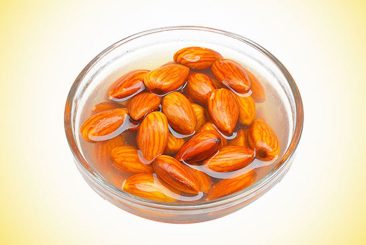
Starting your day with soaked almonds can be a nutritious choice that may offer a metabolism boost. Almonds are rich in magnesium, a vital mineral involved in various metabolic processes within the body. Magnesium plays a crucial role in energy metabolism, helping convert food into energy that the body can use for its functions. Additionally, almonds contain enzymes like lipase, which are involved in the digestion and breakdown of dietary fats. By kickstarting your day with these nutrient-packed almonds, you provide your body with essential elements that support efficient energy utilization and metabolic activity.
However, it’s important to remember that while soaked almonds can contribute to a healthy morning routine, overall metabolic health depends on a combination of factors, including diet, physical activity, and lifestyle choices. Soaked almonds are just one element of a balanced diet, and their impact on metabolism should be considered alongside other healthful habits for comprehensive metabolic support.
2. Copper Vessel Water:

Drinking water stored in a copper vessel in the morning is believed to have potential benefits for digestion and metabolism. Copper may support digestion indirectly by purifying water, and it has antimicrobial properties. While copper itself doesn’t directly burn fat, maintaining good digestive health can contribute to overall well-being. However, scientific evidence for specific fat-burning effects of copper water is limited.
3. Protein-Rich Breakfast:

Incorporating high-protein foods like milk, eggs, paneer (cottage cheese), soy, and lentils into your breakfast can be particularly beneficial for increasing metabolism. These foods stimulate metabolism through the thermic effect of food (TEF), which means that the body expends energy to digest and metabolize the proteins. This process results in the burning of more calories, supporting a higher metabolic rate. Including protein-rich options in your breakfast not only provides sustained energy throughout the day but also promotes the efficient use of calories, potentially aiding in weight management and overall metabolic health.
4. Black Pepper:
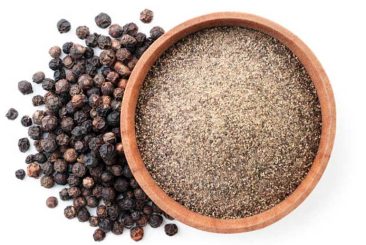
Adding black pepper to your meals can be a flavorful way to introduce piperine, a compound with thermogenic properties, to your diet. Piperine has been shown to potentially boost the metabolic rate and increase calorie burning. This thermogenic effect may help with weight management by aiding in the efficient use of calories. Including black pepper as a spice in your meals not only enhances taste but also offers the potential benefit of supporting a healthier metabolism and overall well-being.
5. Warm Water:

Drinking warm water consistently throughout the day is thought to have potential benefits for metabolism and weight loss. Warm water is believed to help boost metabolism by temporarily raising the body’s core temperature, leading to a minor increase in calorie expenditure. Furthermore, warm water is often regarded as soothing to the digestive system, helping relax gastrointestinal muscles and potentially aiding digestion.
Some studies have suggested that drinking warm water before meals may contribute to appetite control and a sensation of fullness, potentially assisting weight loss efforts by reducing overall calorie consumption. While warm water can be a part of a healthy routine, it should be combined with a balanced diet, regular physical activity, and other healthy lifestyle choices for significant and sustainable weight loss results. Consulting with a healthcare or nutrition professional is advisable for personalized guidance.
6. Cinnamon:
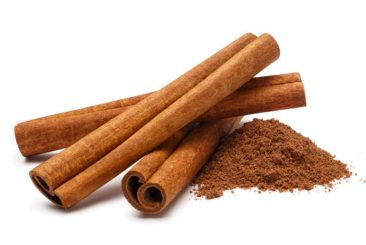
Incorporating a pinch of cinnamon into your diet, whether in foods like green tea or other beverages, can have potential health benefits. Cinnamon is rich in antioxidants, which can help protect the body from oxidative stress and inflammation. Additionally, some studies suggest that an essential oil found in cinnamon, called cinnamaldehyde, may have properties that can support fat burning. While the fat-burning effects of cinnamon are not dramatic, its inclusion in your diet can be a flavorful and nutritious way to enhance your overall antioxidant intake and potentially contribute to a healthy metabolism when combined with a balanced diet and regular physical activity.
7. Physical Activity:

Engaging in regular physical activity is a key component in boosting metabolism and maintaining overall health. This includes both cardiovascular exercises like walking, jogging, and cycling, as well as strength training or resistance exercises such as weight lifting. Cardiovascular workouts help burn calories during the activity and may temporarily elevate metabolic rate post-exercise. Strength training, on the other hand, plays a critical role in building and preserving muscle mass.
Since muscle tissue requires more energy (calories) to maintain than fat, having more muscle can lead to a higher resting metabolic rate. This means that even when you’re at rest, your body burns more calories if you have more muscle. Therefore, combining both forms of exercise can have a synergistic effect on metabolism, helping with weight management and overall metabolic health.
8. Cardamom Tea:

Consuming cardamom tea after lunch is believed to be effective in supporting metabolism and aiding digestion. Cardamom is a spice that has been traditionally used in various cuisines and herbal remedies for its potential digestive benefits. It may help soothe the digestive tract, reduce bloating, and alleviate indigestion. While there’s limited scientific evidence specifically linking cardamom tea to a significant boost in metabolism, its soothing properties can contribute to a sense of well-being after a meal.
However, it’s important to remember that overall metabolic health relies on a combination of factors, including diet, physical activity, and lifestyle choices. Cardamom tea can be a pleasant and potentially beneficial addition to your post-lunch routine, but it should complement a balanced diet and healthy lifestyle for comprehensive metabolic support.
9. Intermittent Fasting:
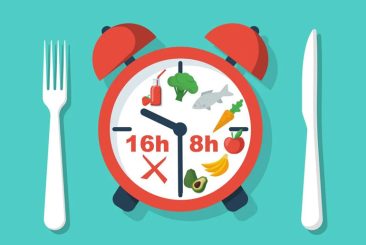
Intermittent fasting, a dietary strategy involving specific eating and fasting periods, may offer benefits for metabolism and weight loss. It operates by encouraging the body to tap into stored fat for energy during fasting hours, potentially aiding in weight management. Intermittent fasting may also promote detoxification by allowing the body to repair and renew cells.
Additionally, it provides the digestive system with a break, which can support improved digestion and potentially help regulate appetite and calorie intake. However, it’s important to approach intermittent fasting carefully and seek professional guidance, as its effectiveness varies among individuals and depends on maintaining a balanced diet and incorporating regular physical activity for sustainable results.
10. Ajwain Saunth Laddoo:

Ajwain Saunth Laddoos, crafted with a blend of dry ginger powder, ajwain seeds, and jaggery, offer a flavorful and potentially digestive-boosting treat. Ajwain seeds are renowned for their carminative properties, aiding in the reduction of gas and bloating. Ginger, known for its digestive benefits and potential anti-inflammatory effects, complements the mix. Jaggery, a natural sweetener, contributes minerals to the laddoos.
Consuming these laddoos before meals may assist digestion by preparing the digestive system to efficiently process incoming food, and they could potentially support metabolism. While they make for a wholesome and tasty snack, they should be part of a balanced diet and healthy eating habits for overall well-being. For personalized advice, especially regarding digestive or metabolic concerns, consulting with a healthcare or nutrition expert is recommended.
It’s important to note that while these foods and practices can support metabolism and weight loss, they should be part of a balanced diet and overall healthy lifestyle. Individual results may vary, and it’s always a good idea to consult with a healthcare or nutrition professional before making significant dietary changes or starting a new exercise regimen.
Disclaimer:
The information contained in this article is for educational and informational purposes only and is not intended as a health advice. We would ask you to consult a qualified professional or medical expert to gain additional knowledge before you choose to consume any product or perform any exercise.







